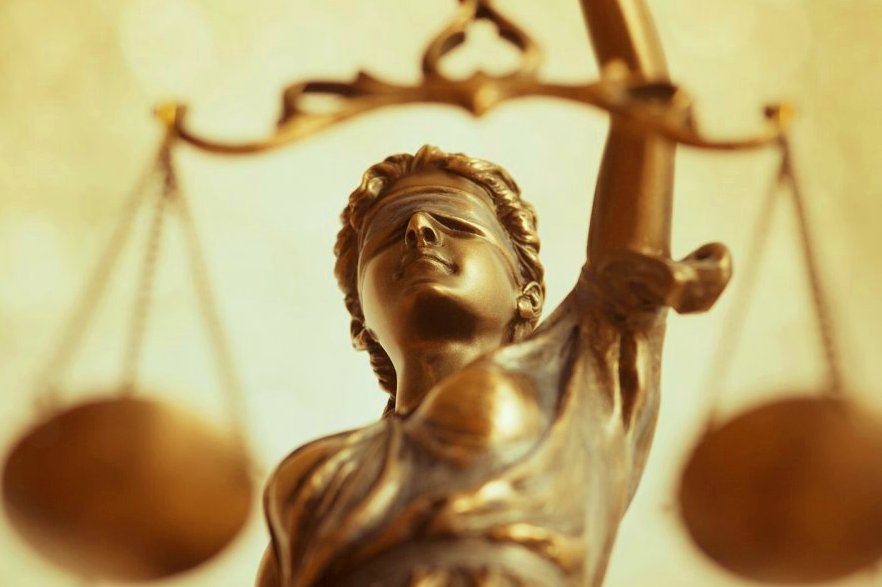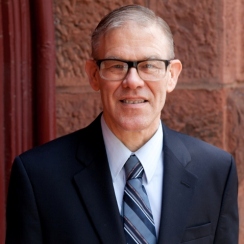An earlier article reviewing a presentation of the Religious Freedom Institute on its Freedom for Religious Institutions in Society (FORIS) project looked at the general landscape of institutional religious freedom in the Western world. The first panel included a review of the most contentious issue in this area – the threat of sexual orientation and gender identity (SOGI) laws to religious institutions.
Stanley Carlson-Thies, founder and Senior Director of the Institutional Religious Freedom Alliance, a division of the Center for Public Justice, then discussed a proposed way of reconciling institutional religious freedom with SOGI laws. It is commonly called “Fairness for All” and in its current form is legislation in the House of Representatives, H.R. 1440. The objective of Fairness for All is to add SOGI categories to federal civil rights law, making them federal antidiscrimination categories along with race, color, religion, and sex, while expanding the religious liberty of religious institutions.
The inspiration for the proposal came from the “Utah compromise” developed in 2015 to effect the passage of a SOGI law in that state. Basically, it makes sexual orientation and gender identity a legal antidiscrimination category for society at large, while religious institutions are exempt from its coverage. Carlson-Thies said that “Fairness for All requires proponents of LGBT civil rights to admit that people who disagree with them on a religious basis also have rights … and then on the side of proponents of traditional moral values, to accept that, of course there shouldn’t be invidious discrimination against people because they are gay or transgender. It could be good to have laws that protect them in the right places, as long as we also protect religious freedom, religious institutional rights, and that would be the rights of people who have a different view about human sexuality and marriage.”
“To my mind, it’s really critical to figure out how to protect religious institutions, if there is this new antidiscrimination requirement,” Carlson-Thies said. He believes that he is considering the conflict between LGBT liberation and religious freedom “within the general framework of the protection of religious freedom itself.” This is because the core issue is the legality of religious sexual morality, its “views about sexuality and marriage.” Those who advocate “for religious freedom in this context … are not out to suppress somebody else, but rather to be able to express their views and advocate for them freely in society.” He said that “just as LGBT people want to be free to live consistent with their deep convictions, so do people [who] affirm traditional sexual morality. That’s very much like classical religious freedom. Catholics for example have particular views about God, the world, human nature, relationships. Muslims have other particular views about these things. And both Catholics and Muslims seek legal protections to be able to live consistently with their beliefs in their personal lives, and through organizations, whether that’s houses of worship or schools and charities.” As an example, he said that a Baptist family might expect its children to be taught Baptist doctrine at a Baptist school, but not at an Islamic or public school.
Carlson-Thies said that the Fairness for All proposal was the outcome of several years of discussion between advocates of strong LGBT civil rights laws, and advocates of strong protections for religious freedom. Some of these LGBT advocates, he pointed out, are religious themselves. He conceded that finding a proposal that both sides could agree on was difficult, and that no one is completely happy with the outcome. Carlson-Thies then discussed some specifics.
Under Fairness for All, some easy solutions include distinctive religious (or secular) organizations and are generally accepted as having distinctive rights. Religious schools were given as an example. But in environments that are not distinctively religious LGBT antidiscrimination standards would apply. This would mean that a religious business owner would have to comply with the full range of LGBT antidiscrimination provisions in running his or her business. This writer would add, however, that this must mean that merchants and professionals (bakers, florists, photographers, medical professionals, etc.) would likewise have to comply with the full range of LGBT antidiscrimination requirements. To state the obvious, this is a major reduction in religious liberty, and as has noted before, causes a conundrum with religious colleges and universities preparing students to serve in business and the professions in which they will be required to violate their consciences.
While defending Fairness for All, Carlson-Thies emphasized that it does not involve holding that LGBT inclination or behavior is righteous, but is only a way for a deeply divided nation to live together peacefully.
David Trimble, Vice President for Public Policy at RFI, directs RFI’s Center for Religious Freedom Education. He maintained that the conflict between LGBT liberation and religious freedom has a different solution than a legislative one. He discussed weaknesses in H.R. 5 (the Equality Act), and H.R. 1440 (Fairness for All). Basically both fail “to uphold the central role that religious freedom has in society according to our founders.” He said that indeed Fairness for All is “a huge step forward from the Equality Act,” but he believes that “it comes up short” as a protection for religious freedom as a fundamental right. SOGI ideology, he said, “still represses religion. It has the practical working out of driving religious freedom further and further to the fringes of society.” Both proposals put religious freedom “on the defensive,” where it should not be under the First Amendment. Religious freedom becomes a matter of finding “narrow exceptions” to a general rule which is to be understood as a rule of justice. It is a “siloed approach,” in which the traditionally religious will “live in our own little world.” Under the Constitution, by contrast, religion is “a core component” of society “that strengthens all of the other fundamental freedoms.”
In particular, Trimble noted that if Fairness for All were the law of the land, Catholic Social Services in Philadelphia would have been required to refer same-sex couples to adoption or foster care agencies that provide children to same-sex couples. More basically, all SOGI legislation involves a “false anthropology of human dignity.” He also doubted that any fixed solution, such as Fairness for All or the Equality Act, will restore social peace given the identity crisis that society is experiencing. Trimble believes that what should be done now is to enforce existing regulations, not to seek a fixed legislative solution.
Trimble observed that in the recent Fulton vs. the City of Philadelphia case, in which Catholic Social Services was allowed to maintain its religious standard of placing children only with married opposite sex couples, the court three times referred to the integrity of the service of Catholic Social Services over a long period of time. Trimble appeared to be underscoring that consistency in organizational behavior to religious standards is an important part of defending religious freedom.
In response, Carlson-Thies said that pluralism does not necessarily require referrals. People know that there are many different organizations in society with different values, and go where they are likely to find the service they want. He observed that no same-sex couple had ever attempted to become adoptive or foster care parents through Catholic Social Services of Philadelphia. It appears to this writer however, that in the absence of legal protection, a single activist attempting to require abandonment of religious morality by an institution can prevail in a lawsuit, regardless of what most people do acting on common sense.
Mark Rienzi, Professor of Law at the Catholic University of America and CEO of the Becket Fund for Religious Liberty, who moderated the panel, asked how the conflict between LGBT liberation and religious freedom is developing in Canada. Paul Marshall of the Institute for Religious Studies at Baylor University responded that “the pressure for LGBT rights is much stronger” in Canada.
Marshall believes the loss of religious freedom there is even greater than exists in other secular western countries such as those in Scandinavia. He referred particularly to the Trinity Western University conflict, which ended with the university abandoning its morality code that required that sexual activity among students to be only in opposite sex marriage. TWU had won a case on the same issue twenty years ago with respect to its teacher college, but lost basically the same case recently with respect to a prospective law school. Alarmingly, the court said the insult to the dignity of LGBT students was of greater importance than religious freedom, and that such insult violated the values of the Canadian Charter of Rights and Freedoms, although the charter specifically refers to the “supremacy of God” and does not refer to homosexuality or transgenderism.
Perhaps the Canadian Supreme Court’s judgment was in the vein of liberal/left legal ideology in the U.S., which appeals to a “living constitution”. The great danger here, Marshall said (in addition to the lack of an objective standard in law) is the apparent claim that private institutions must adhere to the values of the state. In particular, “if the government shouldn’t discriminate on the basis of religion, then Trinity Western shouldn’t either.” Another drastic step taken at the end of 2021 was the prohibition of counseling against homosexuality. This really prohibits religious teaching against homosexuality, since it can be construed as “counseling,” and as Marshall pointed out, can involve prison sentences. In a considerable understatement, Marshall said that “Canada gives some worrying indications of what might happen.”
Rienzi then asked Timothy Shah of the University of Dallas and principal investigator for the FORIS Project about the situation in India, where Christian institutions are having difficulty with the government. Shah said that although the Indian constitution, which was adopted in 1951, is one of the few in the world that guarantees institutional religious freedom, the Indian Supreme Court interprets this right very narrowly, and there is considerable government interference in religious bodies. He said that Hindu institutions are “subject to wide ranging restriction … authorized by Indian courts,” and at the end of 2021, thousands of non-government organizations, including Christian organizations and including the Missionaries of Charity of Mother Theresa, lost their right to receive foreign funding. What is being seen in India, Shah believes, is being seen around the world, including western countries, in which the administrative state is exerting strict control on private organizations in civil society. In India, as in other countries, this affects religions “across the board.”
Threats to institutional religious freedom in all three countries – the United States, Canada, and India – show that the explicit constitutional protections for religious freedom are commonly set aside for an impassioned call to liberation convinced of its righteousness. These cases involved the right to practice religion in the public square. While it is sometimes claimed by enemies of religious liberty that religion should be confined to houses of worship, the next panel, which considered the effects of the coronavirus pandemic on religious practice, showed that not even in houses of worship do constitutional guarantees of the free exercise of religion necessarily prevail. That panel’s discussion will be the topic of the final article in this series.






Comment by Lay Cistercians on January 21, 2022 at 1:16 pm
Just live with love in God, thy neighbor and with peace. God will take care of the rest.
Comment by Rick Plasterer on January 21, 2022 at 5:40 pm
Lay Cistercians,
But we must not be complicit in sin (Matt. 18:7-9), and declare the whole counsel of God (Acts 20:27).
Rick